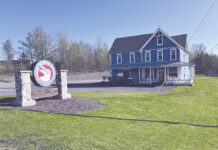UNIVERSITY PARK, Pa. — Changing weather patterns pose significant challenges for modern dairy farmers — excessive hot or cold temperatures, drought and humidity can have a detrimental effect on cows’ health, which ultimately can lead to decreased milk production.
Deciding how best to react to those changes to ensure the vitality of dairy farms — while being good stewards of the environment — can present a bit of a conundrum for some farmers, especially if they are pressed for time and resources.
What are the best management practices? Are there technologies that can help? Is there current research on the subject?
Now, those farmers can see sustainability principles in action with just a few clicks of the mouse, thanks to an interactive “virtual farm” website developed by researchers in Penn State’s College of Agricultural Sciences and Penn State Extension, in partnership with the project’s lead, the University of Wisconsin-Madison, Cornell University and the Dairy Innovation Center.
“The objective of this project is provide a ‘one-stop shop’ for all dairy sustainability information,” said Eileen Fabian, professor of agricultural engineering and environmental biophysics in Penn State’s Department of Agricultural and Biological Engineering.
“The beauty of it is that one can take a tour of a sustainable dairy farm without stepping foot on an actual farm. The resources are accessible, free and can be viewed at any time from anywhere.”
Fabian explained that the catalyst for this major undertaking was a growing movement in the dairy industry to adopt practices that mitigate the negative effects of agricultural operations on the environment while securing the future sustainability of farms.
In Pennsylvania alone, there are 6,650 dairy farms — the second largest number of dairy farms nationally — according to the Center for Dairy Excellence.
In addition to producing 10.7 billion pounds of milk annually, the state’s dairy industry provides 60,000 jobs and has an estimated annual economic impact of $7 billion.
Virtual farm
The website has two virtual farms: one is a model of a 1,500-cow facility, while the other is a smaller-scale operation of 150 animals. Users can click on the various aspects of the farm and information related to that specific area will pop up.
Topics include herd management, feed management, milk production, crops and soils, manure management and greenhouse gases.
The site’s database includes a broad range of articles, Extension fact sheets, models, images and graphics.
The layers of information range from exploration of the farm site with basic information to higher levels of technical and research information, data and models.
For example, if one clicks on the manure storage facility, several links will appear, enabling viewers to scan information.
Future farms
Now that the team has successfully launched its website, Fabian sees great potential in creating additional virtual farms, perhaps focusing on poultry production and animal welfare issues.
The five-year project received a $10 million grant from the Coordinated Ag Project Program of the U.S. Department of Agriculture’s National Institute of Food and Agriculture.
To tour the farm, visit http://virtualfarm.psu.edu. Additional information can be found by visiting https://extension.psu.edu.










